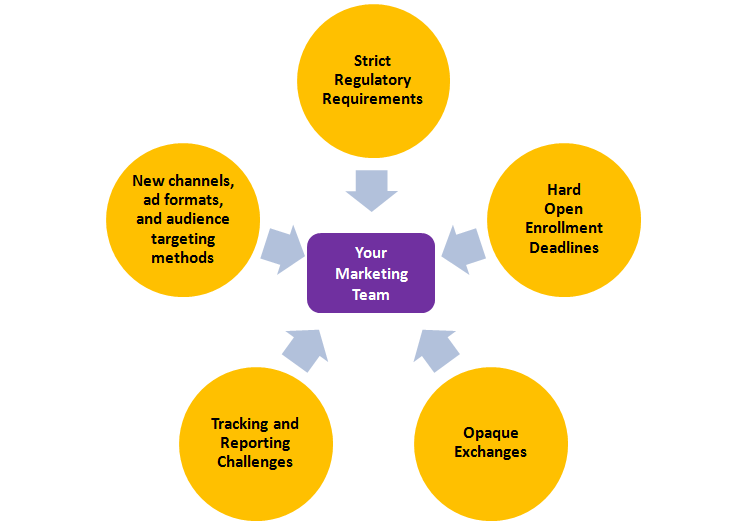Having negotiated, and signed, numerous Google Ads management contracts with clients over the years, I do have substantial business experience in this area; that said, I am not a lawyer, and you should run any contract language by one to make sure that whatever you are doing is appropriate for your business. That all said, there are certain items that I feel are really key to have in place in any Google Ads management contract.
1. Language making the deliverables clear
It’s not important to cover every base here, just to give the general gist of what the effort will entail. One key piece I always include is a line you can drive a truck through – “other mutually agreed upon activities, as time allows”. That’s a reasonable way of covering anything that isn’t specifically called out. Also, I always like to call out that the company will be paying Google or Bing directly for clicks (this makes it clear how everything is going to work).
That said, I usually include an appendix in any proposal that looks like the following:
———————————————————————————————————————
Paid Search Account Optimization, specifically activities in the following areas, as time allows.
Activities may include:
– Keyword Research
– Add keywords to the account
– Add negative keywords
– Organize campaigns
– Create and/or test ads
– Optimizing bids
– Track spend and manage budget
– Analyzing performance and making recommendations
– Recommending landing page and tracking changes to website to increase conversions
– Reporting on campaign performance
– Set up remarketing and/or Bing Ads campaigns
– Attribution analysis of AdWords & other channels
– Other mutually agreed upon activities, as time allows
Note: Company will pay Google and/ or Bing directly for clicks.
———————————————————————————————————————
2. Language to make the contracting relationship clear
This is critical, particularly for tax purposes (you don’t want to pay social security for some contractor after a lawsuit later, right?). You can find plenty of boilerplate language by searching for: “Contractor is an independent contractor and is not an employee”
3. Language Ensuring Confidentiality
Unless you’re signing a separate NDA, make sure that the contractor has obligations to keep your information confidential. There are volumes and volumes written on this, and you can do an online search for “NDA” to look for language, but I like to make sure that in particular, some language like this is included. Some companies only include language from the first and second sections but the others seem pretty reasonable and I always like to ask for them. Requiring a written record prepared contemporaneously avoids potential “he said/she said” conflicts down the road:
Contractor’s obligations under this Section shall not apply to any information that
(i) is or becomes publicly available through no fault of Contractor,
(ii) is already in the possession of Contractor without restriction on use or disclosure at the time of Company’s disclosure to Contractor,
(iii) is lawfully obtained by Contractor from a third party, without any obligation of confidentiality, that is entitled to disclose such information, or
(iv) was or is independently developed by Contractor without reference to Confidential information as demonstrated by written records prepared contemporaneously with such independent development.
4. Language making ownership of intellectual property clear
Why worry about intellectual property, we’re just talking about managing an AdWords account, right? Well, if the contractor is giving you advice on landing pages or your website…or is designing them for you…and they are subcontracting out to a designer, what if that designer later decides to sue everyone, saying what they put together is theirs? What you want to search for is contract language covering “work for hire” and “moral rights”.
5. You should be able to terminate the contract at any time with 30 days notice
Make sure that either side can terminate the contract with 30 days notice, with the contractor having to wrap up any work in process in a reasonable fashion. Anyone that tries to lock you in with an ironclad 6-month or 12-month contract, who isn’t willing to earn your business every month, isn’t worth working with. Having a 6 or 12-month agreement that automatically renews is fine, just make sure you can terminate it at any time.
6. Specific pricing called out for all potential spend levels
High spends (>$20/month) usually justify 10% of spend pricing; lower spends are often priced out with a flat fee. See our other article on Google Ads Management Pricing Models for a deeper understanding of pricing. But any AdWords management contract should spell out pricing – and it should cover the situation where your spend increases dramatically. After all, if the account manager does a good job, you will grow your business and spend more; and at some point, it starts becoming unfair to the account manager unless you adjust the pricing for their services. Large spends require a large amount to manage properly, and the last thing you want to do is pay someone insufficiently, so they revert into “send reports, cash checks, and do as little as possible” mode instead of giving your account the optimizations and love that it needs.
7. Require permission for use of your logo or any testimonial quotes
Some companies even include language making clear that the contractor must seek permission before using any company logo or quotes in any case studies or on their website (it’s not necessary but is a good idea so that the contractor gets the message. I think we’ve all seen companies that liberally sprinkle customer logos all over their website…many times without permission. Spelling it out helps head off any unprofessionality).
In Conclusion…Read EVERY Contract in Detail!
I am constantly surprised at how many people sign contracts without requesting any changes in them, and how many sign them without really reading them. You should read any Google Ads Management Contract that’s presented to you, make sure that there is nothing concerning in it, make sure the issues above are addressed, and in an ideal world – run it by a lawyer before signing it!



